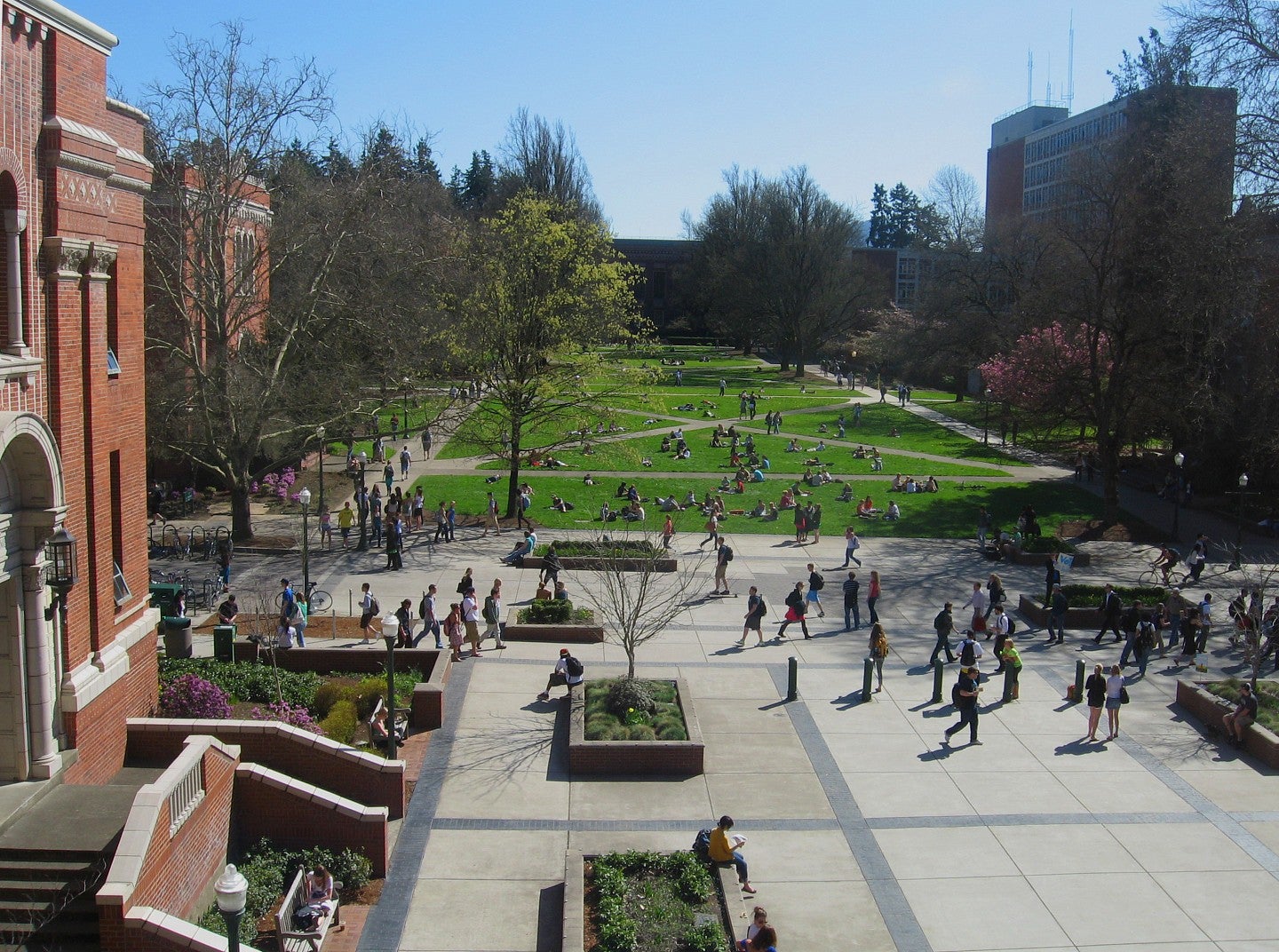
Each UO Sustainability Award has a unique campus sponsor and each sponsor has their own methodology for choosing winners. This page compiles the open nomination calls.
Have nominees for the other awards not on this page or questions? While not all of the awards have an open application/nomination process, recommendations and ideas are always welcome, including for Sustainable Purchasing, Town and Gown, Student Programming and Support, and Sustainable Campus. Send your suggestions or any other questions via email to Sarah Stoeckl, Office of Sustainability Associate Director, sstoeckl@uoregon.edu, by February 19, 2025.
Research and Innovation
The Office of the Vice President for Research and Innovation (OVPRI) is seeking nominations for individuals or research teams for the 2025 Sustainability Awards. This award program aims to recognize individuals whose contributions deepen our culture of sustainability across a range of institutional activities. The OVPRI sponsors two of the Sustainability Awards: one for research and scholarship, and one for innovation and impact. Please fill out the online form by February 10, 2025 to make nominations (self-nominations welcome).
Student Leadership
Due date for the nomination is Monday March 3. A simple paragraph describing their work/contributions is all that’s necessary for nomination, to Taylor McHolm, tmcholm@uoregon.edu
We typically award a graduate student and an undergraduate student an award, so please feel free to recommend either. Nominations for student groups are also great. Essentially, any student (or group) whose work is worthy of attention and celebration beyond what they would receive through coursework or academic accolades would be great. The student’s/s’ work should advance sustainability at the UO or in the broader UO-community. It should go beyond their normal academic requirements and academic excellence, and demonstrate exceptional impact/contributions through co-curricular or extra-curricular work that advances the causes of environmental vitality, economic development, and/or social equity.
---
